Unsafe cargo and unsafe anchorage resulted in the loss of ship
The Nautical Institute has issued Mars Report regarding an accident occurred due to unsafe loading of nickel ore and unsafe anchorage which resulted in the loss of ship.
The Incident
A bulk carrier was to load a cargo of nickel ore from barges intofive holds. During loading, which took approximately three weeks,intermittent rainfall caused interruptions in loading. The ore on thebarges had to be covered over with tarpaulins and the holds on thevessel had to be closed. The crew of the vessel carried out a ‘can test’of the ore on each barge before transfer to the vessel.If the test failed,an ‘oven drying test’ was done to determine the moisture content ofthe ore. If the moisture content was found to exceed the TransportableMoisture Limit (TML was 34.80%), the cargo in the barge wouldnormally be rejected.However, records indicate that on at least two occasions cargo wasaccepted with moisture contents of 35.54% and 37% respectively.
Oncethe loading was completed, the holds were trimmed and pressed bymeans of cargo grabs; each cargo hold was about half-full. Calculationsshowed the vessel’s intact stability met the requirements of theInternational Code on Intact Stability, 2008. About a week after departure the Master had to divert due to atyphoon, eventually dropping anchor at a port of refuge that offeredprotection from wind and seas from the north. The vessel was yawingand rolling heavily and dredging her anchor at the anchorage dueto strong winds and heavy sea, now coming from the southeast.
Thefollowing day, the vessel encountered a strong wave causing her to heelto port about 20. The vessel returned somewhat upright but was stilllisting about 10 to port. Within two hours the list to port increased to45 and then 90. Soon afterward the vessel capsized and sank. All crew successfully abandoned the vessel before sinking and wererescued without injuries. More than 600 tonnes of oil leaked into the seaand took more than three months to clean up.
|
The investigation into the accident revealed several contributoryfactors including the following:
- Nickel ore was loaded despite a moisture content that exceeded itsTransportable Moisture Limit, contrary to the requirements of theInternational Maritime Solid Bulk Cargoes Code (IMSBC Code).
- Several of the shipboard safety procedures for loading and carriage ofnickel ore were not followed.
- Due to the heavy rolling at anchorage there was liquefaction of theore cargo.
- The Master’s selected refuge anchorage was not appropriate as thelocation could only shelter from northerly wind and waves. The vesselexperienced strong southeasterly wind and waves when the typhoon,as predicted, passed south and southwest of the vessel’s anchorage.
The investigation also revealed the following safety issues:
- The moisture content certificate of the nickel ore was issued bythe shipper instead of the local administration or independentorganisation (or authorised organisation)
- The crew was not trained and therefore not competent to carry outthe oven drying test to verify the moisture content of the cargobefore loading.
|
NI notes that although ‘can tests’ can be used by crew to validate suspicions* that the moisture content of the ore may be above thecertified TML, the oven drying test should be done in a laboratory.The Intercargo guide for transporting nickel ore, published in 2012,states: Where there is doubt concerning any cargo declarationinformation, or suspicion that the cargo has been misrepresented,independent cargo testing to determine the FMP, TML and actualmoisture content of the cargo to be loaded should be carried out.
To avoid accidents due to nickel ore liquefaction please read also the following:
Safe Carriage of nickel ore
Safe loading in cargo in bulk of nickel ore

|
According to INTERCARGO’s Guide for the Safe Loading of Nickel Ore the following factors should be taken into consideration
- Shipper’s Declaration: It is a legal requirement under the provisions of SOLAS Chapter VI, Regulation 2 and the IMSBC Code Section 4.2 for the shipper to provide accurate cargo information to the Master.
- Correct BCSN: All dry bulk cargoes should be shipped under their correct Bulk Cargo Shipping Name (BCSN). Nickel Ore does not yet have its own schedule in the IMSBC Code and hence has no BCSN. A cargo not listed in the IMSBC Code should be shipped under Section 1.3 of the IMSBC Code under a ‘tripartite agreement’. However, in the absence of such agreements, as a cargo known to be prone to liquefaction such as Nickel Ore should be transported under Section 7 of the IMSBC Code (Cargoes that may liquefy) as a “Group A” carg
- TML: As a cargo prone to liquefaction, it is essential that Nickel Ore is classified as “Group A” and the accurate Flow Moisture Point (FMP) must be determined in accordance with the IMSBC Code and the Transportable Moisture Limit (TML) stated in the cargo declaration.
- Moisture Content (MC): The actual moisture content of the cargo to be loaded must be provided by the shipper in accordance with the IMSBC Code from samples taken no more than seven days prior to loading. If the moisture content of the cargo is likely to have changed since the samples were taken, e.g. due to monsoon rain, further samples should be taken and the moisture content re-certified.
- MC < TML: The actual moisture content must be below the Transportable Moisture Limit. If not the cargo must not be loaded.
- Visual inspection: As far as practicable, the owner’s representative or ship’s crew should visually inspect the cargo stockpiles prior to loading. If such inspections or any associated “can tests” conducted under Section 8 of the IMSBC Code cast doubt on the accuracy of the cargo declaration, then the cargo must not be loaded and further advice sought.
- Load: The cargo should be loaded in accordance with the provisions of SOLAS Chapter VI, the Code of Practice for the Safe Loading and Unloading of Bulk Carriers (the BLU Code), and the IMSBC Code including trimming requirements under Section 5.
- Visual monitoring: Visual monitoring should be carried out during loading and if indications of high moisture content are observed, such as free water or cargo splatter, loading must stop and further advice sought.
|
Source : Mars Reports/ The Nautical Institute









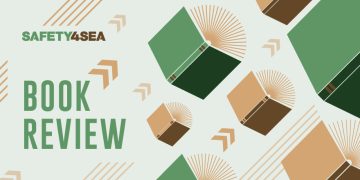










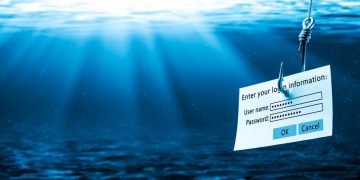

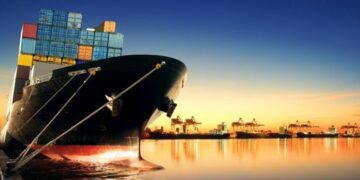





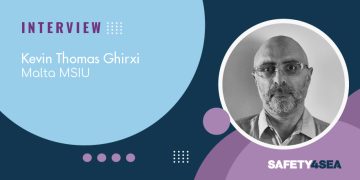


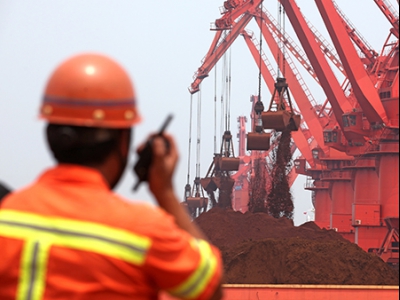



































I didn’t realize that when it comes to transporting goods through barges you need to have a certain level of moisture from the load. I can see that this can help the crew know what measures top take to ensure the cargo is safe while it is being transported. It makes sense that a company who has the experience and tools to ensure their work would get better business and more people who trusts them.